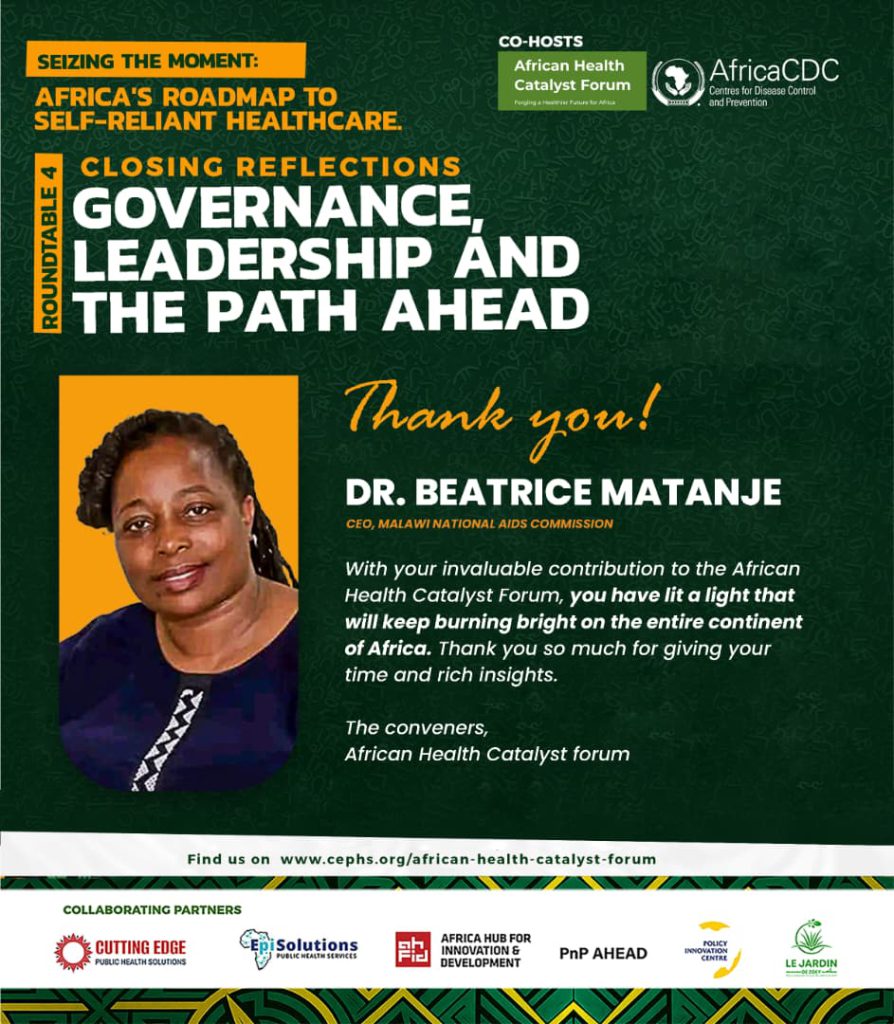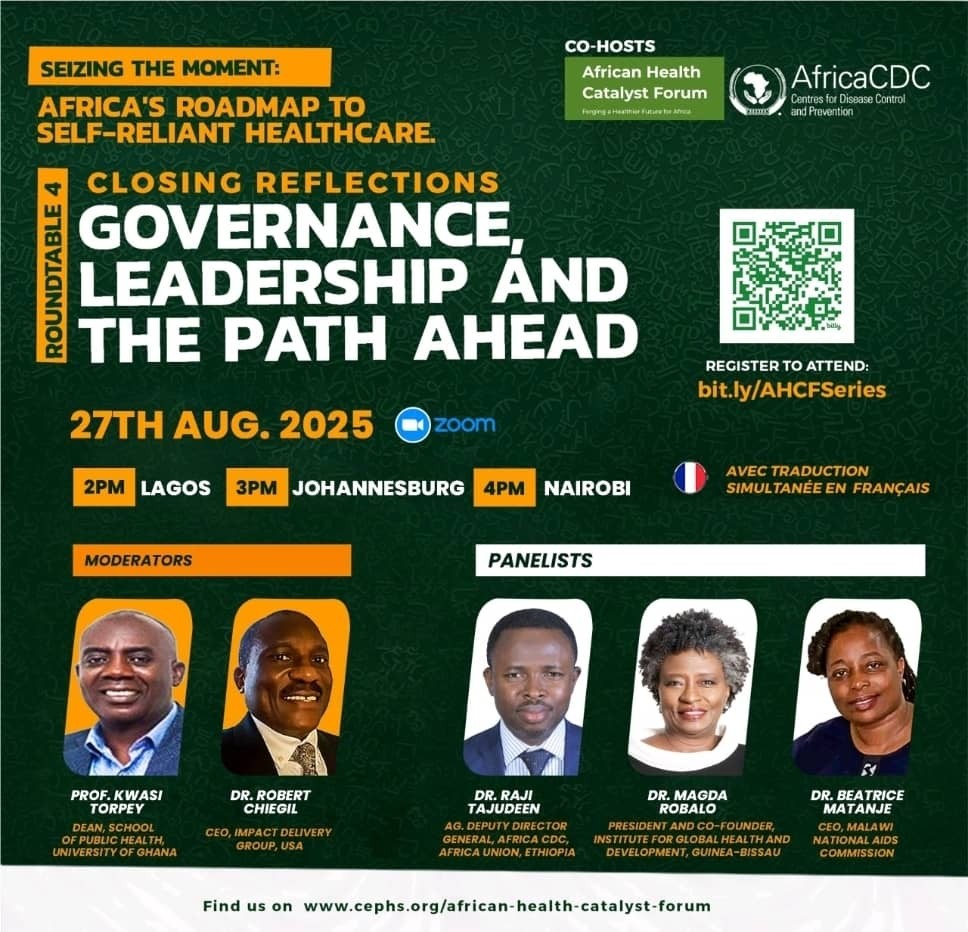At the Africa’s Roadmap to Self-Reliant Healthcare Webinar on August 27, 2025, Dr. Beatrice Matanje, CEO of the National AIDS Commission, delivered a compelling call to action below:
The path ahead is not paved with aid but with audacity. Africa has the talent, resolve, and ingenuity to build health systems that serve our people. Let’s turn reflections into revolutions—ensuring every child, mother, and community thrives in a healthier, self-reliant Africa.
Speaking during the 4th Roundtable Discussion, which focused on Governance, Leadership, and the Path Ahead, Dr. Matanje joined two other key speakers to outline a bold vision for African healthcare. Addressing how adaptive leadership has mitigated funding shocks, Dr. Matanje highlighted African nations demonstrating agility in resource allocation. In Nigeria, the legislature approved an additional $200 million for health in 2025, targeting vaccines and HIV epidemic treatments to offset funding cuts and prevent spikes in HIV infections and deaths. In Ghana, the President directed the Finance Minister to bridge USAID funding gaps, sustaining critical services. Here at home, the Government of Malawi has shown commitment to mitigate the shocks by allocating additional resources to HIV programming (about 5.1 billion kwacha) for increased HIV commodity co-financing, strengthening sample transportation systems, and prioritizing human resources for health through the recruitment of frontline healthcare workers.

“Adaptive leaders use evidence-based data for efficient allocation, as emphasized in the Africa CDC’s New Public Health Order,” Dr. Matanje noted.
Dr. Matanje stressed that mobilizing domestic resources is key to transitioning from donor dependency to sustainable healthcare models. She advocated for expanding the African Development Bank’s health portfolios and enforcing implementation of Abuja Declaration’s commitment to allocate 15% of national budgets to health.“Africa’s health destiny lies not in lamenting dependencies but in boldly seizing our collective agency. We are not victims of circumstances, but we are architects of a self-reliant future,” she declared. She further emphasized fostering partnerships that ensure that civil society and communities are not just observers, integration, innovation, and citizen-led accountability to drive health initiatives that would ensure sustainable, inclusive progress. “Africa’s lack of progress stems from short-sighted, donor-dependent plans. We need 30-year strategies, with civil society and private sector partnerships, to drive financial and technical support,” Dr. Robale urged.
Taking his turn, Dr. Raji Tajudeen, Acting Deputy Director General for Africa CDC, emphasized the need for leadership capacity building to achieve equitable, self-reliant health systems by 2030. He called for timely coordination, information sharing, and maximizing domestic funding. “We must invest as a continent and help member states mobilize resources domestically to achieve more with limited means,” Dr. Tajudeen stated.

Moderated by Professor Kwasi Torpey, Dean of School of Public Health at the University of Ghana, and Dr. Robert Chiegel, CEO of Impact Delivery Group, the webinar, underscored a unified message: Africa’s healthcare future hinges on bold leadership, domestic resource mobilization, and long-term planning. By embracing audacity over aid, Africa can forge a path to self-reliance, ensuring health equity for all its people.

Leave a Reply